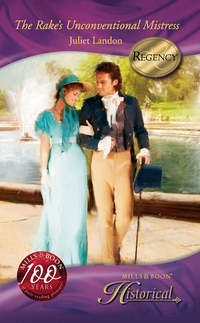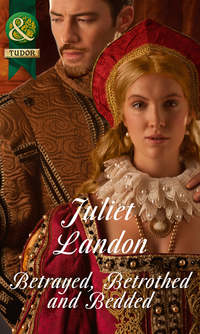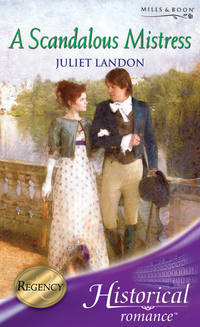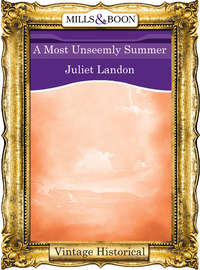
Полная версия
One Night in Paradise
Even so, Her Majesty was well aware of Adorna Pickering’s existence and, because she liked Sir Thomas and his wife, she encouraged their talented family to attend her functions. It worked both ways; while the Queen surrounded herself with beautiful and talented people, Adorna’s presence went some way towards advertising her father’s success as a new office-holder. Even though still part of the Great Wardrobe under Sir John Fortescue, his position carried with it a certain responsibility, one of which was to be seen in the best company.
To have access to Court without actually being sucked into the vortex of it was, Adorna believed, a very pleasant place to be, especially as her home was so conveniently near, with her father always at hand for protection if danger came a mite too close. On more than one occasion, he had been a very efficient tool to use against a too-persistent trespass, and running for cover became Adorna’s foolproof defence against over-attentive men, young or old, who would like to have taken more than was on offer. Though guests came and went constantly to her home at Sheen House next door to the palace, there were at least a dozen places in the fashionably meandering building where Adorna could remain out of touch until danger had passed.
True to form, she sought refuge with her father in the Revels Office for, despite Sir Nicholas’s refusal to be put off by the mention of him, she could think of no reason why the younger man would venture there to find her. There was still time left in the day to see how her father had proceeded without her, nor was it far for her and her maid to pass from Sheen House down what had lately become known as Paradise Road and through the gate in the wall of the palace garden.
To Sir Thomas’s annoyance, the Revels Office had no separate buildings of its own and was therefore obliged to share limited space with the Great Wardrobe where some of the Queen’s clothes were stored, others being in London itself. Consequently, tailors and furriers, embroiderers, carpenters and painters, shoemakers and artificers all worked side by side with never enough room to manoeuvre. Adorna’s creative talents were often put to good use in the Revels Office where men with flair and drawing ability were always in demand to design sets, special effects and costumes for the many Court entertainments.
Today, she had found a relatively private corner in which to examine some of the sumptuous and fantastic creations being prepared for a masque at the palace at the end of the week. She had helped to design the costumes and choose the materials and jewels, also to construct the elaborate head-dresses and wigs, for all the Court ladies taking part must have abundant blonde hair. She lifted one of the masks and held it above a flimsy gown of pale sea-green fringed with golden tassels, holding her head to one side to judge its effect.
‘Try it on,’ her father said. ‘That’s the best way to see.’
‘That won’t help me much, will it, Father?’
‘Perhaps not, but it’ll help me.’ He grinned and, to please him, she took up the mask and the robe stuck all over with silver and gold stars and went into a corner screened off from the rest of the busy room. Maybelle, her maid, went with her to help, though Adorna was wearing no farthingale or whalebone bodice to complicate matters. In a few moments she emerged to confront her father, but found to her surprise that he was not now alone but in the company of Sir John Fortescue and another officer of the revels who assisted her father.
This was not what Adorna had intended, for she was not wearing the correct undergarments, nor was the pale green robe with stars even finished, and it was only the papier mâché mask of a Water Maiden covering her face that hid her sudden blush of embarrassment as she held the edges of the fabric together across her bosom. And there was only one sleeve; her other arm was bare.
Before she could retreat, they had seen the half-dressed sea nymph and immediately began an assessment of its cost multiplied by eight, the amount of white-gold sarcenet with Venice gold fringe and the indented kirtles with plaits of silver lawn trailing from the waist. Not to mention the masks, head-dresses, shoes, stockings, tridents and other accessories, multiplied by eight.
‘Put the head-dress on, my dear,’ Sir Thomas said. ‘Which one is it? This one?’ He picked up a conch-shell creation covered in silver and draped with dagged green tissue to resemble seaweed and passed it to Maybelle.
‘Er…no, Father, if you please,’ Adorna protested.
But she was overruled by the three of them, and the thing was placed on her head, pushing down the mask in the process and making it difficult for her to see through the eyeholes. She must alter that before they were used. She heard murmurs of approval. ‘I must go,’ she mumbled into the claustrophobic space around her mouth. ‘Excuse me, if you please.’
Blindly, she turned and was caught by a hand on her arm before bumping into the person who had been standing silently at her back, someone whose familiar voice made her tear quickly at the mask, lifting it and tangling it with her loose hair and the head-dress in an effort to see where she was. The fabric across her front gaped as she let go of it and was snatched together again by Maybelle’s quick hand, but not before Adorna had seen the direction of the man’s eyes and the unconcealed interest in them.
‘Not a good day for water nymphs,’ Sir Nicholas whispered, letting go of her arm and stepping back to allow her to pass.
Summoning all her dignity, Adorna quickly snatched at a length of red tissue from the nearest tabletop and held it up to hide herself from the man’s gaze. ‘This is the Revels Office,’ she snapped, ‘not a sideshow.’
Amused, Sir Nicholas merely looked across at her father and Sir John.
Sir Thomas explained. ‘It’s all right, my dear. Sir Nicholas comes from the Master of Horse. He needs to know about our luggage for the progress to Kenilworth. Don’t send the poor man away before he’s fulfilled his mission, will you? Or I’ll have his lordship to answer to.’
Fuming, Adorna swept past him and returned to the screen, her face burning with annoyance that the man had once again seen her at a disadvantage. That he had seen her at all, damn him!
‘It’s all right, mistress,’ Maybelle whispered. ‘He didn’t see anything.’
‘Damn him!’ Adorna repeated, pushing her hair away. ‘Here, Belle. Tie my hair up into that net. There, that’s better.’ Her second emergence from the corner screen was, in a way, as theatrical as the first had been, for now she was not only reclothed in her simple day gown of russet linen but, covering the entire top of her body in an extravagant swathe of glittering red was the tissue she had snatched from the table. It trailed over one shoulder and on to the floor behind her, blending with the russet of her gown and contrasting brilliantly with the gold net caul into which her hair had hurriedly been bundled.
Astounded by the transformation as much as by the sheer impact of her beauty, the four men’s conversation dwindled to a stop as she approached, her head held high, and it was her father who spoke, at last. ‘Quick change, nymph!’ he laughed.
Sir Nicholas was more specific. ‘Water into fire,’ he murmured.
Sir John cleared his throat. ‘Ahem! Yes…well, your designs for the masque appear to be well in hand, Sir Thomas. I trust you’ll not leak any of this, Sir Nicholas. The masque theme must be kept secret until its performance.’ The Master of the Great Wardrobe looked at the younger man sternly from beneath handsome greying eyebrows.
‘I quite understand, sir. No word of the masque will be got from me, I assure you. My lord the Earl of Leicester is planning several for Her Majesty’s progress to Kenilworth, and he’s just as concerned about secrecy.’
‘Ah, yes,’ said Sir Thomas, ‘you need to know how many waggons and carts we need for the Wardrobe, don’t you? Well, why not come and join us for a late dinner on Wednesday? Lady Marion and I are celebrating my appointment with some friends. These two gentlemen will be there, too. Do you have a lady, Sir Nicholas?’
‘No, sir. Not yet.’ He smiled at their grins, and Adorna was aware that, had she not been there, more might have been said on that subject. But her father had blundered by inviting him to their home, which meant that both her places of refuge were now no longer safe from his intrusion.
Sir Thomas was clearly expecting his daughter’s approval of the invitation. He looked at her, eyebrows raised. ‘Adorna?’ he said.
The expression in her eyes, though fleeting, said it all. ‘No lady yet, Sir Nicholas? Perfect. Cousin Hester will be with us by tomorrow and Mother was wondering what to do about a partner for her. Now the problem is solved.’
Sir Nicholas bowed gracefully. ‘Thank you, mistress. I look forward to meeting Cousin Hester. Is she…?’
‘Yes, the late Sir William Pickering’s daughter. The heiress.’ That should turn your neat little head, she thought. ‘Now, if you will excuse me, gentlemen?’
Moving away from the group at the same time, Sir Nicholas was not inclined to let her go so easily, but strode alongside her, weaving his way in and out of the workers at the tables. By some miracle, he reached the door before her.
She glared at him. ‘I do not need lifting on to my horse, sir, I thank you. I left it at home.’
‘You’re walking? In this?’ He indicated the trail of billowing red stuff.
‘As long as you are gawping at me, yes. In this.’
‘And if I stop…er…gawping?’ He gave an impish smile.
She sighed, gustily, and glanced across at her father’s group. ‘Go back to your business, sir, if you please, and leave me to mine. You are in the wrong department.’
‘I’ll get used to it,’ he said softly, ‘and so will you, mistress.’
‘No, sir, I think not. See how you fare with Cousin Hester.’
‘And will Cousin Hester be in Water or in Fire?’
‘In mourning,’ she said, sweetly. ‘Good day to you, sir.’
Chapter Two
T o her father’s question of why she had been so ill-disposed towards Sir Nicholas Rayne that afternoon, Adorna had no convincing reply except that she didn’t much care for the man.
Sir Thomas agreed that the excuse was a poor one. ‘I hope I’m not as short with those I don’t much care for, my lass, or I’d not hold on to my office for too long. Is there more to it than that?’ He was a shrewd man, tall and elegant with white hair and beard and a reputation for fairness that made him keep friends with all factions.
‘No, Father. No more than that.’
‘He’s a well set-up fellow. The earl speaks highly of him.’
‘Yes, Father. I expect Cousin Hester will like him well enough, too.’
‘Then perhaps by that time you could pretend to, for everyone’s sake.’
‘Yes, Father. I’m sorry.’
‘He has more about him than Master Fowler, for all his long title.’
‘Oh, Father!’
‘Well, you’re twenty now, Adorna, and you can’t be chasing them off for ever, you know. There are several who—’
‘No…no, Father, I beg you will do no such thing. I shall know the man I want when I see him, and Peter will serve quite well until then.’
‘Really? Well then, you’d better start looking a bit harder because it’s time your mother and I were grandparents. Perhaps you’re being a bit too pernickety, my dear, eh?’ He touched her chin gently with one fingertip.
‘Yes, Father. I expect I probably am.’
Pernickety was perhaps not the word Adorna would have applied to her thoughts on men and marriage, though she might have agreed that they were somewhat idealised. Having never been in love, she had relied so far on the descriptions given her by friends and those gleaned from romantic tales of King Arthur and Greek mythology. Not the most reliable of sources, but all there were available. Consequently, she believed she would recognise it when it happened, that she would know the man when he appeared. Obnoxious, arrogant and presumptuous men were not on her list of requirements. For all that, she could not have said why, if he were so very unsuitable, Sir Nicholas Rayne was continually on her mind, or why his face and form were before her in the minutest detail.
To her amusement, she had heard in the usual roundabout manner that she was regarded by some men as being hard to get, not only because of her efficient safety nets, but mainly because she had never yet been prepared to bind herself to any man’s exclusive friendship for more than a few weeks. There were men and women among her friends whom she had known as a child, some of whom were parents by now, but she and a few others enjoyed their state of relative freedom too much to let go of it. In the same way, she supposed, that the Queen enjoyed hers. While others involved themselves deeply in the serious business of mate-finding and binding, she was happy to indulge in men’s admiration from a distance, sometimes playing one off against the other, but committing herself to none. It was a harmless and delicious game to play in which she took control, rather like the plays her brother wrote where actors acted out a story and then removed the disguise and went home to sleep soundly.
She found her father’s sudden concern irritating. It suggested to her that he might cease to be as helpful to her as he had been in the past. It also suggested that he had recognised in Sir Nicholas Rayne a man he might be prepared to consider as son-in-law if she didn’t make it absolutely clear that he was not the man she was looking for. Exactly who she was looking for would be harder to explain, for while she and her female friends accepted their own conquettish ways as being perfectly normal, none of them felt that fickleness in a man was desirable. A man must be constant, adoring and lover-like, and none of those commendable traits could be ascribed to Sir Nicholas Rayne, Deputy Master of Horse. Let him stick to his horses and she would stick to her ideals.
Sheen House was the most convenient of the Pickerings’ houses, the nearest to Sir Thomas’s place of work when the Queen was in residence. It was also Adorna’s favourite, situated to one side of the old friary built by the Queen’s grandfather when he rebuilt the old palace of Sheen, which had been destroyed by fire. Sheen Palace in its new form was then renamed Richmond after the earldom in North Yorkshire that had been Henry VII’s favourite home. The palace was massively built on the edge of the River Thames, its gardens enclosing the friary which had its own private garden, known as the paradise, at the eastern end. Since the dissolution of the monasteries almost forty years previously, the friary had been left to disintegrate, its stone reused, its beautiful paradise overgrown, now used by the palace guests for walking in private. The road that led past Sheen House, past the old friary and down the southern wall of the palace garden to the river, had now become Paradise Road. Most of the friary land was visible from the garden of Sir Thomas Pickering’s house, providing what appeared to be an extension of their own, the friary orchard and vineyard being used by the palace gardeners. The rest of Richmond’s houses spread along the riverbank to the south, most of them timber-framed set amidst spacious gardens and orchards, free from the noise and foul air of London Town.
Sheen House, however, was built of soft pink brick like the palace itself, originally in the shape of an E for Elizabeth. Sir Thomas’s latest addition to the buildings was a banqueting house in the garden, built especially for Lady Marion’s entertaining, and it was here on the next day that the call reached Adorna and Maybelle that Cousin Hester had arrived. The small octagonal room was situated in one corner approached by a paved walkway above the fountain-garden, far enough from the house for them to remove their aprons and fling them on to the steps before greeting their guest.
They had fully expected to see some change in Cousin Hester, having last seen her as a mere child of ten on one of her father’s rare visits to Sheen House. Hester’s father had never been married, not even to Hester’s mother, an unknown lady of the Court who had allowed her daughter to be brought up by one of Sir William’s married sisters. Consequently, the astonishment felt by both women at the sight of each other was in Adorna’s case cleverly concealed, and in Hester’s case not so.
‘Oh!’ she whispered. ‘Oh…I…er…Mistress Adorna?’ Hester looked from Adorna to Maybelle and back again. Although a year older than her cousin, she was still painfully shy, twisting her black kid gloves together like a dish-clout, her eyes wide and fearful.
Bemused, Lady Marion laid a motherly arm across her guest’s shoulders. ‘Call her Adorna,’ she whispered, kindly. ‘And for all you’re Sir Thomas’s cousin rather than our children’s, you must call us all by our Christian names, you know. Sir Thomas and Seton and Adrian will be in later.’
That announcement did not provoke the delighted anticipation it was intended to, for the young lady looked as if she might have preferred to make a bolt for it rather than meet men and boys.
Adorna took pity on her, smiling with hands outstretched. The wringing hands did not respond. ‘Welcome, Cousin Hester. You must be tired after your journey from St Andrews-Underhill.’ There was no real reason why she should have been, for her new home was only a stone’s throw from St Paul’s in the centre of London.
‘Yes,’ Hester whispered. She looked around her at the white plasterwork and the warm tapestried walls. ‘It’s cool and quiet here. I remember how I liked it before, long ago.’
‘Well,’ Lady Marion said, leading her towards the carved oak staircase, ‘a lot’s happened since then, and now you’re a woman of independent means, free to do whatever you wish. You’re our guest for as long as you choose to stay.’
There was no corresponding flash of delight at hearing her new status described. On the contrary, the very idea of having to make her own decisions was apparently not something she looked forward to with any relish. Sir William Pickering, Sir Thomas’s cousin, had died at the beginning of the year, leaving his fortune and his house in London to Hester.
‘Did you bring your maid with you?’ said Adorna. ‘If not, you shall share Maybelle with me. She knows how to dress hair in the latest fashions. Come, shall we find your room? The men will bring your baggage up.’
Cousin Hester’s mourning-garb was only to be expected, in the circumstances, though neither the hostess nor her daughter would have allowed themselves to look quite so dowdy as their guest had the same thing happened to them. While they were not particularly in the forefront of fashion as those at Court were, neither were they ten years behind it as Hester was. Her figure could only be guessed at, concealed beneath a loose-bodied gown closed from neck to hem with fur-edged ties, puffed shoulder-sleeves and tight bead-covered under-sleeves. The hair to which Maybelle may or may not have access was almost completely hidden beneath a black french hood that hung well down at the back, though the bit of hair that showed at the front was brownish and looked, Maybelle thought, as if it needed a washing before it would reveal its true colour.
After her father’s reproach the day before, Adorna now exercised all her charity towards her half-cousin, knowing little of the background of experience which had kept Hester inside her protective shell. For a woman of her age, she was impossibly tongue-tied and, for an heiress, she was going to find it difficult to protect herself from fortune-seeking men of whom there were countless hereabouts. Adorna managed it by virtue of her closeness to her parents; Hester would not manage it at all without some help. Yet on their guest list for Saturday, Adorna and her mother had already paired off this pathetic young lady with Sir Nicholas Rayne who might, for all they knew, be one of those sharks from whom she would need protection. On the other hand, they might suit each other perfectly. Strangely, the idea had lost its appeal for Adorna.
Having helped to unpack Hester’s rather inadequate belongings and a very limited range of clothes, Adorna conducted her on a tour of the house, which she believed would make her feel more at home. Inside, there was much of it that Hester remembered, but outside, the large formal garden had been restructured into a series of smaller ones bounded by tall hedges, walls, trellises and stone balustrades, walkways, steps and spreading trees. The banqueting house was also new to her.
Adorna opened the double doors to reveal a marble-floored garden-room with windows on all eight of its sides. The ceiling was prettily plastered with clouds and cherubs bearing fruit, and the panels between the windows were painted to represent views of the garden beyond. In the centre of the floor was a round marble table supported by grimacing cherubs.
‘For the banquets,’ Adorna said, ‘the suckets and marchpanes. I’m making them ready in the stillroom. We’ll come out here after the last course and nibble while the servants clear the hall ready for the entertainment.’
‘Tonight?’
‘No, tomorrow. About thirty guests are coming to dinner. Didn’t Mother tell you?’
The colour drained from Hester’s face. ‘Guests? Oh, dear.’ Her hand flew to her mouth. ‘Perhaps I should stay in my room. I’m in mourning, you must remember.’
‘Hester, dear…’ Adorna drew her down to a stone bench fixed to the wall ‘…being in mourning doesn’t mean you have to avoid people. It’s nearly seven months since Sir William died, and how often did you see him in your twenty-one years?’
‘Two…three times. I don’t recall.’
‘So, you can still wear black for a full year, if you wish, but Sir William would not have wanted you to hide away for so long, would he? After all, he was a man who lived life to the full, I believe.’
She supposed Hester to know at least as much as she did about Sir William Pickering, who had once believed himself to be in the running for the Queen’s hand in the days before the Earl of Leicester. She had shown him every favour and he had exploited that favour to the full, making himself extremely unpopular while he was about it. But the Queen did not marry him and he had retired from Court, permanently unmarried but not chaste.
‘Did your aunt never tell you about her brother?’ Adorna said. ‘By all accounts your father was a remarkable man. In the Queen’s Secret Service, a scholar, a fine handsome man. Women adored him, and he must have loved your mother and you very much to have wanted you to inherit his entire wealth. He doesn’t sound to me like the kind of man who would want his daughter to hide herself away when she has the chance to meet people. My mother and father will be here, remember. We’ll take care of you.’
Hester, who had been gazing at her hands until now, sighed and stared out of the window. ‘Yes…but…’
‘But what?’
‘Well, you’re so used to it. You know what to say, and you’re so beautiful, and fashionable…and…’
‘Nonsense! Some of the most fashionable ladies are not beauties, and some beauties are dowdy. Everyone has at least one good feature, and you have several, Hester.’
‘I do?’
‘Of course you do. The secret is to make the most of them. Would you like me to help? I can, if you’ll allow it. Maybelle and I can do your hair, and we can find something a little prettier to wear?’
‘In black?’
‘In black, but more flattering. Yes?’
At last a smile hovered and broke through. ‘All right. And will you tell me what to say, too?’
‘Ah, now that,’ Adorna said, ‘may take a little longer, but I can certainly try. The first thing to do is to smile.’
By the time Sir Thomas returned to Sheen House in mid-afternoon, the transformation had begun and the outmoded mousy young lady who had been greeted by Lady Pickering was not quite the same one who curtsied gracefully to the master of the house, though the effort of it robbed her of words. Between them, Adorna and Maybelle had worked wonders. The hair had now been washed, burnished and arranged into a small jewelled cap that sat on the back of her head like a ripe hazelnut. Hester’s straggly eyebrows had been plucked to form two slim arches, and her faint eyelashes had been darkened with a mixture of soot and saliva, which seemed to work very well. Even those few measures had been enough to convert an ordinary face into a most comely one, but Hester’s greatest assets were her teeth. Once she began to show their dazzling whiteness, there was no reason why she should not smile more often, Adorna told her.








